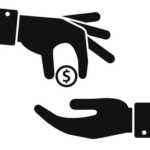Waste for Life has four ongoing projects:
Sri Lanka, Argentina, Standing People Together in the U.S. and, most recently, Mexico. We have many collaborators in each country but the ultimate beneficiaries of our work are the communities, cooperatives, and schools that we have worked alongside since 2007.
Project : Mexico
If not obscured by haze or smoke, Tijuana is clearly visible across the ocean from Cabrillo National Monument in Point Loma, San Diego. The Mexican border town is but 20 miles away from the Monument, and an intrepid National Park Service ranger (or, perhaps, several rangers or even the entire Park Service), sensing the irony of it all, has staked signage on one of the park’s hiking trails reminding us how artificial that border, or any border for that matter, really is.
Project : Standing People Together
Standing People Together is a new constituent-led grassroots program of Waste for Life based in Sullivan County, NY.
It emerges from years of experience working alongside people with minimal civic voice, those who are scorned by power – be they communities desiccated by HIV/AIDS in Lesotho or ransacked by mining in Andean Peru; generationally unemployed single mothers in Liverpool or ambulatory waste pickers in Argentina; abhorred indigenous students in Australia or trauma-laden war survivors in Sri Lanka.
Project : Sri Lanka
WFL Sri Lanka began to take shape within the PhD fieldwork of Randika Jayasinghe, who is now our in-country Project Coordinator. For 3 years, she investigated and assessed the feasibility of adapting our Argentinian work model to her own country’s contexts. The total waste landscapes are, of course, entirely different from one another – in both the general civic consciousness about waste and its valuation (writ large), and in the makeup of the groups that are closest to waste sources. But when the Department of Foreign Affairs and Trade (DFAT) put out a 2014 call for proposals for their Global Partnerships for Development scheme (GPFD), we applied and won 1 of 13 grants.

